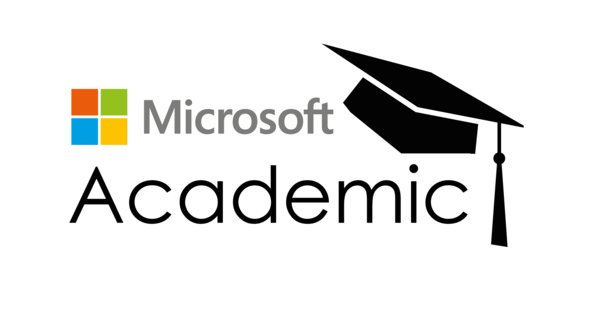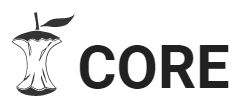Peningkatan Prestasi Siswa melalui Pengembangan Profesional Guru: Suatu Tinjauan Literatur
(1) Universitas Budi Luhur
(*) Corresponding Author
Abstract
Keywords
Full Text:
PDFReferences
Akiba, M., & Liang, G. (2016). Effects of Teacher Professional Learning Activities on Student Achievement Growth. Journal of Educational Research, 109(1), 99–110. https://doi.org/10.1080/00220671.2014.924470.
Anto, A. G., & Coenders, F. (2019). Teacher Learning in Collaborative Professional Development: Changes in Teacher and Student Practices. In Collaborative Curriculum Design for Sustainable Innovation and Teacher Learning (pp. 229–247). Springer. https://doi.org/10.1007/978-3-030-20062-6.
Badan Pemeriksa Keuangan (2020a). Undang-Undang Republik Indonesia Nomor 20 Tahun 2003 tentang Sistem Pendidikan Nasional. Diakses 23 April 2020. https://peraturan.bpk.go.id/Home/Details/43920/uu-no-20-tahun-2003.
Badan Pemeriksa Keuangan (2020b). Undang-Undang Republik Indonesia Nomor 14 Tahun 2005 tentang Guru dan Dosen. Diakses 23 April 2020. https://peraturan.bpk.go.id/Home/Details/40266/uu-no-14-tahun-2005.
Bechtel, P. A., & O’Sullivan, M. (2006). Chapter 2: Effective Professional Development - What We Now Know. Journal of Teaching in Physical Education, 25(4), 363–378. https://doi.org/10.1123/jtpe.25.4.363.
Borko, H. (2004). Professional Development and Teacher Learning: Mapping the Terrain. Educational Researcher, 33(8), 3–15. https://doi.org/10.3102/0013189X033008003.
Borko, H., Elliott, R., & Uchiyama, K. (2002). Professional Development: A Key to Kentucky’s Educational Reform Effort. Teaching and Teacher Education, 18, 969–987.
Bredeson, P. V., & Johansson, O. (2000). The School Principal’s Role in Teacher Professional Development. Journal of In-Service Education, 26(2), 385–401. https://doi.org/10.1080/13674580000200114.
Clarke, D., & Hollingsworth, H. (2002). Elaborating a Model of Teacher Professional Growth. Teaching and Teacher Education, 18(8), 947–967. https://doi.org/10.1016/S0742-051X(02)00053-7.
Cochran-Smith, & Lytle, S. L. (1999a). The Teacher Research Movement: A Decade Later. Educational Researcher, 28(7), 15–25. https://doi.org/10.3102/0013189X028007015.
Cochran-Smith, M., & Lytle, S. L. (1999b). Relationships of Knowledge and Practice: Teacher Learning in Communities. Review of Research in Education, 24(1), 249–305. https://doi.org/10.3102/0091732x024001249.
Cooper, H. M. (1988). Organizing Knowledge Syntheses: A Taxonomy of Literature Reviews. Knowledge in Society, 1(1), 104–126. https://doi.org/10.1007/BF03177550.
Cronin, P., Ryan, F., & Coughlan, M. (2008). Undertaking a Literature Review: A Step-by-Step Approach. British Journal of Nursing, 17(1), 38–43. https://doi.org/10.1177/107808747000500401.
Darling-Hammond, L., Hyler, M. E., Gardner, M., & Espinoza, D. (2017). Effective Teacher Professional Development. Palo Alto: Learning Policy Institute.
Darling-Hammond, L., & McLaughlin, M. W. (2011). Policies That Support Professional Development in an Era of Reform. Phi Delta Kappan, 92(6), 81–92. https://doi.org/10.1177/003172171109200622.
Darling-Hammond, L., Wei, R. C., Andree, A., Richardson, N., & Orphanos, S. (2009). Professional Learning in the Learning Profession: A Status Report on Teacher Development in the United States and Abroad. National Staff Development Council. https://doi.org/10.1006/jfbi.2002.2063.
Day, C. (2002). Developing Teachers: The Challenges of Lifelong Learning. Journal of Chemical Information and Modeling (Vol. 53). Taylor & Francis e-Library. https://doi.org/10.1017/CBO9781107415324.004.
Desimone, L. M. (2009). Improving Impact Studies of Teachers’ Professional Development: Toward Better Conceptualizations and Measures. Educational Researcher, 38(3), 181–199. https://doi.org/10.3102/0013189X08331140.
Desimone, L. M., & Garet, M. S. (2015). Best Practices in Teachers’ Professional Development in the United States. Psychology, Society and Education, 7(3), 252–263. https://doi.org/10.25115/psye.v7i3.515.
Desimone, L. M., Porter, A. C., Garet, M. S., Yoon, K. S., & Birman, B. F. (2002). Effects of Professional Development on Teachers’ Instruction: Results from a Three-year Longitudinal Study. Educational Evaluation and Policy Analysis, 24(2), 81–112. https://doi.org/10.3102/01623737024002081.
Diaz-Maggioli, G. H. (2003a). Options for Teacher Development. English Language Teaching Forum, 2(41), 5–12.
Diaz-Maggioli, G. H. (2003b). Professional Development for Language Teachers. EDO-FL, 03-03. ERIC Digest. https://doi.org/10.1093/elt/ccl014.
Garet, M. S., Porter, A. C., Desimone, L., & Birman, B. F. (2001). What Makes Professional Development Effective? Results From a National Sample of Teachers. American Educational Research Journal, 38(4), 915–945.
Grant, R. M. (1996). Toward A Knowledge-Based Theory of The Firm. Strategic Management Journal, 17(Winter Special Issue), 109–122.
Gruenert, S. (2000). Shaping a New School Culture. Contemporary Education, 71(2), 14–18.
Gruenert, S. (2005). Correlations of Collaborative School Cultures with Student Achievement. NASSP Bulletin, 89(645), 43–55. https://doi.org/10.1177/019263650508964504.
Gumuselii, A. I., & Eryilmaz, A. (2011). The Measurement of Collaborative School Culture (CSC) on Turkish Schools. New Horizons in Education, 59(2), 13–26.
Guskey, T. R. (2003). What Makes Professional Development Effective? Phi Delta Kappan, 84(10), 748–750. https://doi.org/10.1177/003172170308401007.
Guskey, T. R., & Sparks, D. (2002). Linking Professional Development to Improvements in Student Learning. Annual Meeting of the American Educational Research Association.
Guskey, T. R., & Yoon, K. S. (2008). What Works in Professional Development. Phi Delta Kappan, 90(7), 495–500. https://doi.org/10.1177/003172170909000709.
Holland, H. (2005). Teaching Teachers: Professional development to Improve Student Achievement. American Educational Research Association (Vol. 3). Washington, DC.
Joyce, B. R., & Showers, B. (2003). Student Achievement Through Staff Development. National College for School Leadership. Retrieved from http://books.google.com/books?hl=en&lr=&id=MtBj2sJXHGwC&pgis=1.
Kafyulilo, A. C. (2013). Professional Development through Teacher Collaboration: An Approach to Enhance Teaching and Learning in Science and Mathematics in Tanzania. Africa Education Review, 10(4), 671–688. https://doi.org/10.1080/18146627.2013.853560.
Knapp, M. S. (2003). Chapter 4: Professional Professional Development as a Policy Pathway. Review of Research in Education, 27(1), 109–157. https://doi.org/10.1016/B978-0-12-382030-3.00004-0.
Lee, H., Longhurst, M., & Campbell, T. (2017). Teacher Learning in Technology Professional Development and its Impact on Student Achievement in Science. International Journal of Science Education, 39(10), 1282–1303. https://doi.org/10.1080/09500693.2017.1327733.
Lin, S.-C., Cheng, W.-W., & Wu, M. (2015). Uncovering a Connection between the Teachers’ Professional Development Program and Students’ Learning. Journal of Education and Practice, 6(23), 66–74.
Lumpe, A. T. (2007). Research-Based Professional Development: Teachers Engaged. Journal of Science Teacher Education, 18, 125–128. https://doi.org/10.1007/s10972-006-9018-3.
Marcelo, C. (2009). Professional Development of Teachers: Past and Future. Educational Sciences Journal, (8), 5–20. https://doi.org/10.1163/9789087907419.
Nabhani, M., Nicolas, M. O. D., & Bahous, R. (2014). Principals’ Views on Teachers’ Professional Development. Professional Development in Education, 40(2), 228–242. https://doi.org/10.1080/19415257.2013.803999.
Newmann, F. M., King, M. B., & Youngs, P. (2000). Professional Development that Addresses School Capacity: Lessons from Urban Elementary Schools. American Journal of Education, 259–299.
Patton, K., Parker, M., & Tannehill, D. (2015). Helping Teachers Help Themselves: Professional Development that Makes a Difference. NASSP Bulletin, 99(1), 26–42. https://doi.org/10.1177/0192636515576040.
Pemerintah Provinsi Jawa Barat (2019). Guru Faktor Kunci Keberhasilan Pendidikan Berkualitas. Diakses 15 Maret 2020. https://jabarprov.go.id/index.php/news/33740/2019/07/19.
Prast, E. J., Weijer-Bergsma, Eva Van Kroesbergen, E. H., & Van Luit, J. E. H. (2018). Differentiated Instruction in Primary Mathematics: Effects of Teacher Professional Development on Student Achievement. Learning and Instruction. https://doi.org/10.1016/j.learninstruc.2018.01.009.
Randolph, J. J. (2009). A Guide to Writing the Dissertation Literature Review. Practical Assessment, Research and Evaluation, 14(13), 1–13.
Rosser, A. (2018). Beyond Aacces: Making Indonesia’s Education System Work. Sidney: Lowy Institute.
Smith, C., Hofer, J., Gillespie, M., Solomon, M., & Rowe, K. (2003). How Teachers Change: A Study of Professional Development in Adult Education. Retrieved from http://www.ncsall.net/fileadmin/resources/research/report25.pdf.
Spillane, J. P., Halverson, R., & Diamond, J. B. (2001). Investigating School Leadership Practice: A Distributed Perspective. Educational Researcher, 30(3), 23–28. https://doi.org/10.3102/0013189x030003023.
Yoon, K. S., Duncan, T., Lee, S. W.-Y., Scarloss, B., & Shapley, K. L. (2007). Reviewing the Evidence on How Teacher Professional Development Affects Student Achievement. Regional Educational Laboratory Southwest, 033. https://doi.org/10.3102/0002831208328088.
DOI: https://doi.org/10.30588/jmp.v10i1.648
Article Metrics
Abstract view : 945 timesPDF - 145 times
Refbacks
- There are currently no refbacks.
Copyright (c) 2020 Yuni Kasmawati

This work is licensed under a Creative Commons Attribution 4.0 International License.

Jurnal Maksipreneur: Manajemen, Koperasi, dan Entrepreneurship is licensed under a Creative Commons Attribution 4.0 International License.
Based on a work at http://ejournal.up45.ac.id/index.php/maksipreneur.
Jurnal Maksipreneur: Manajemen, Koperasi, dan Entrepreneurship has been indexed/archived by:




Journal of Maksipreneur: Management, Cooperative, and Entrepreneurship (JMP)
Organized by Management Department, Universitas Proklamasi 45, Yogyakarta, Indonesia
Published by Universitas Proklamasi 45, Yogyakarta, Indonesia
Email: [email protected] | [email protected]











